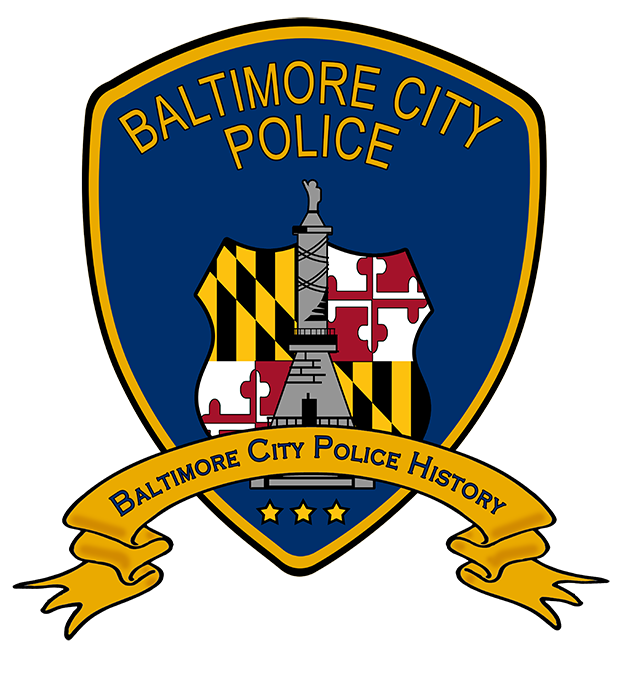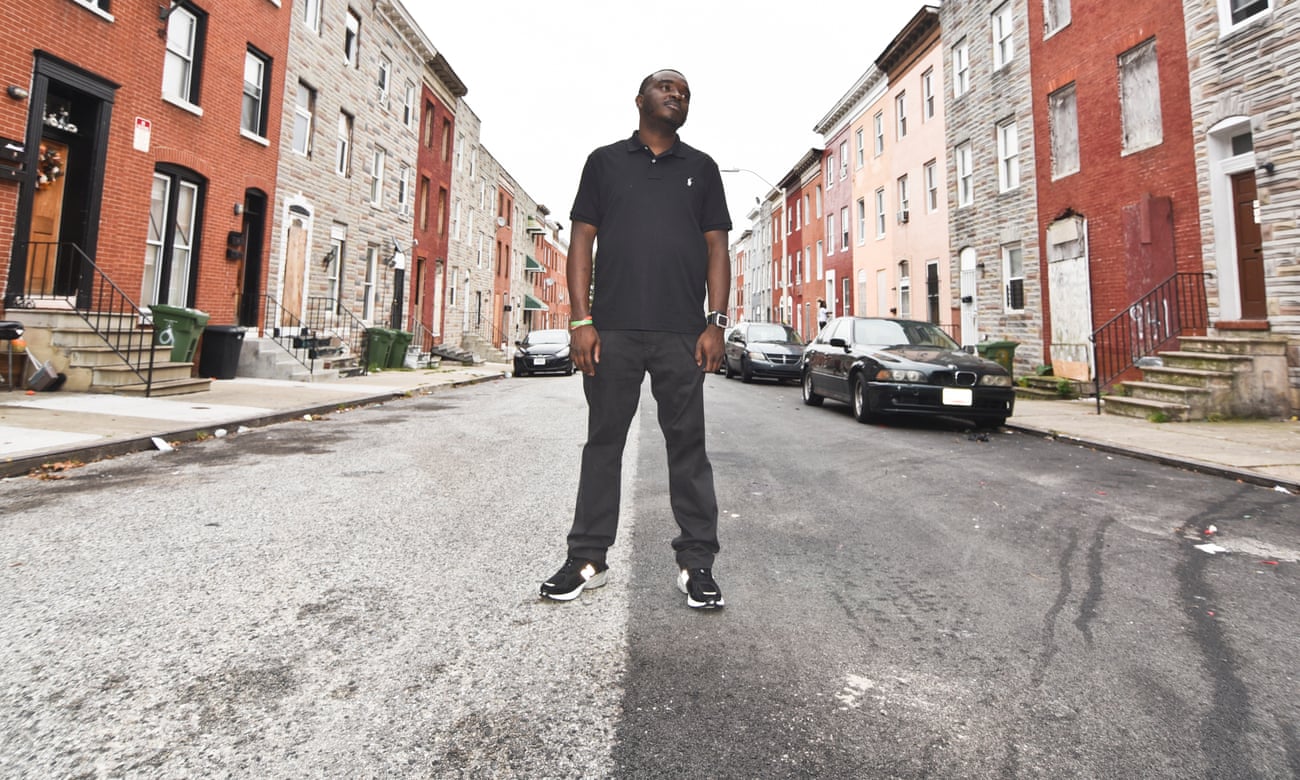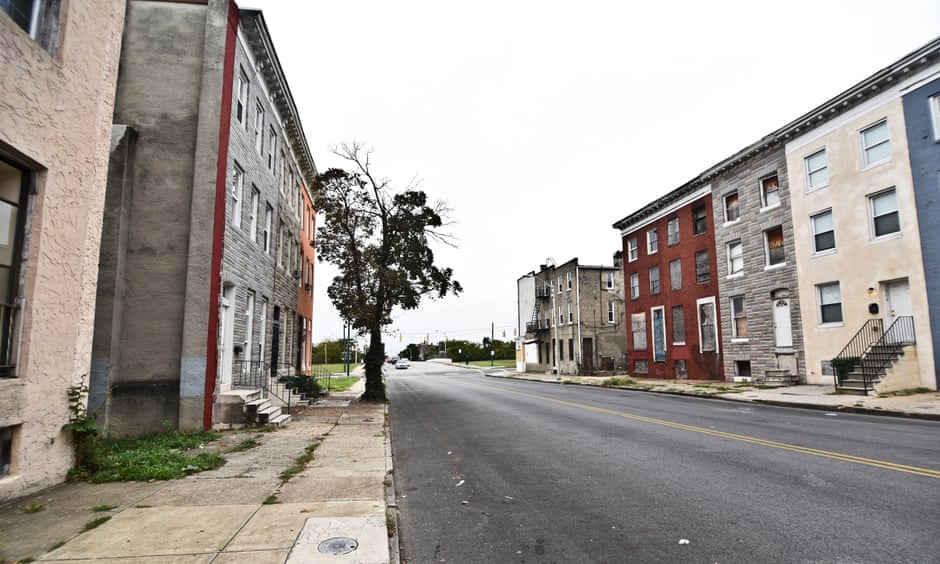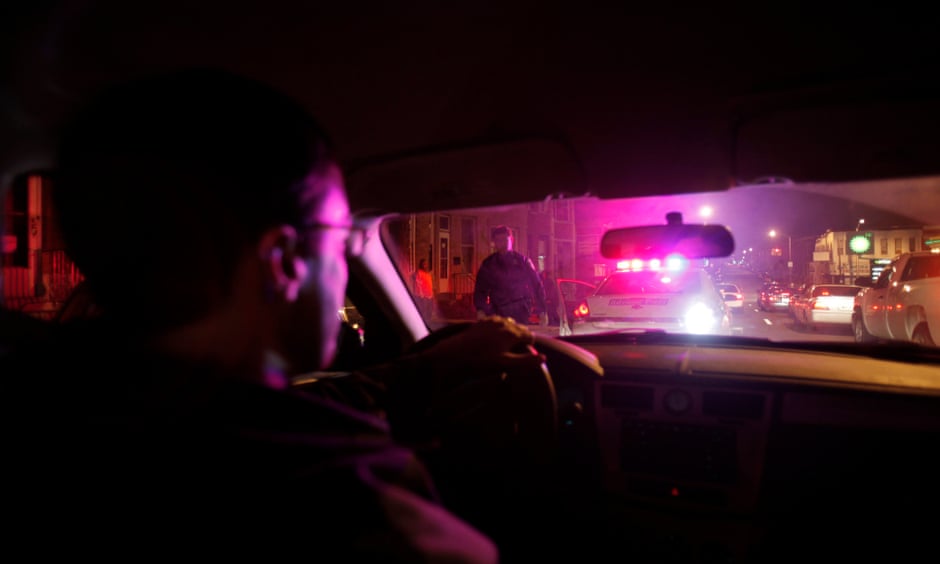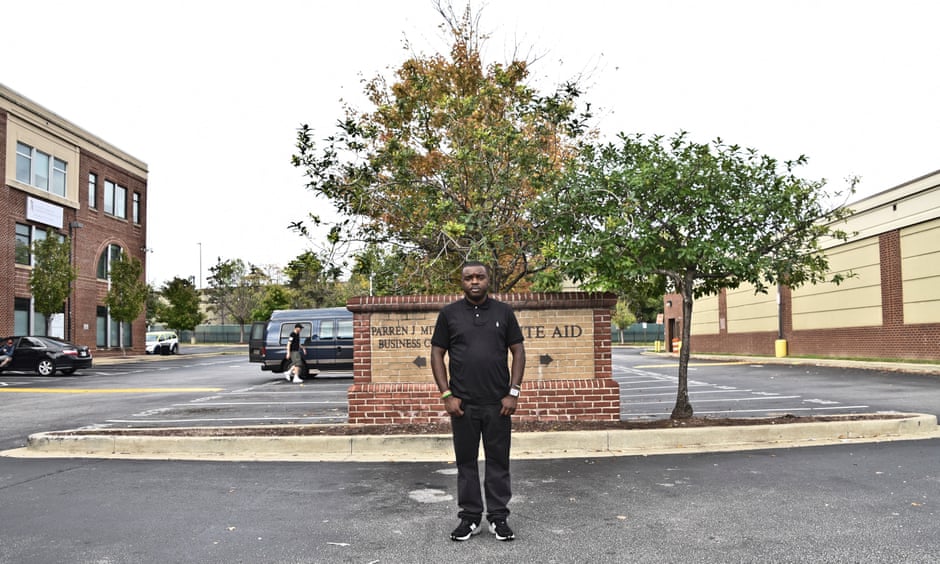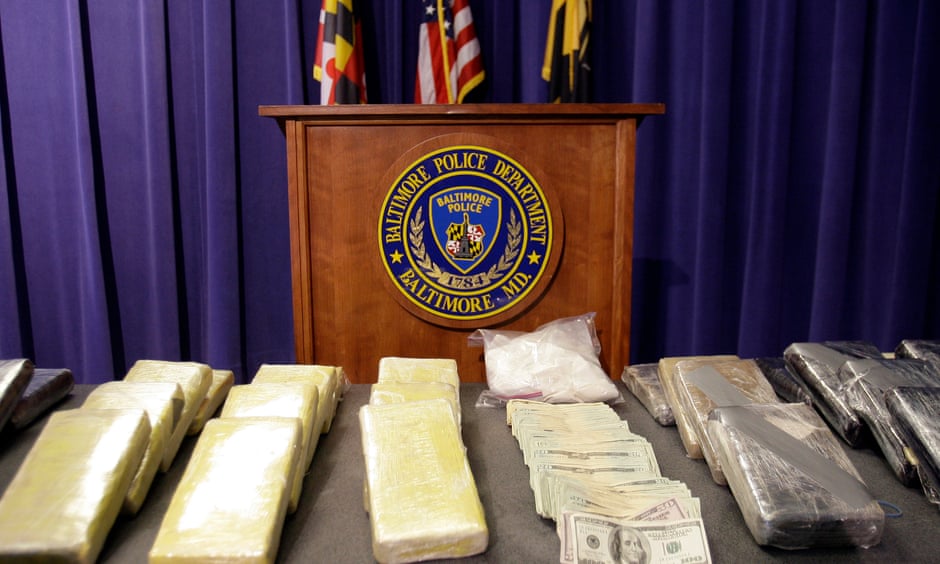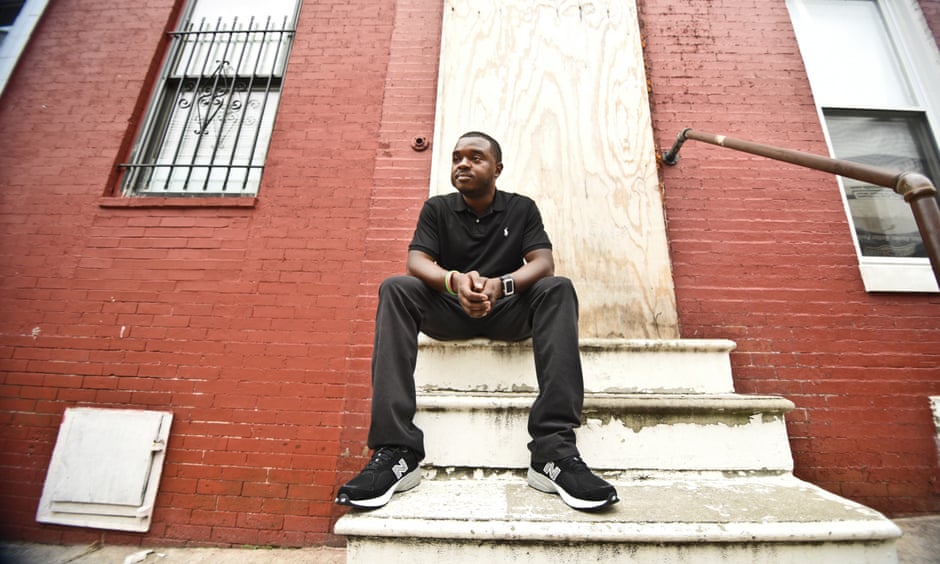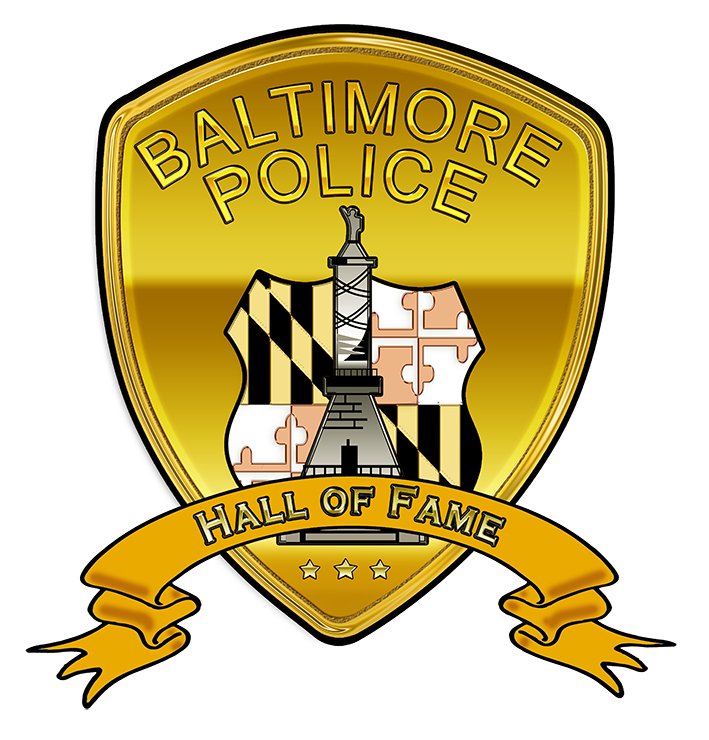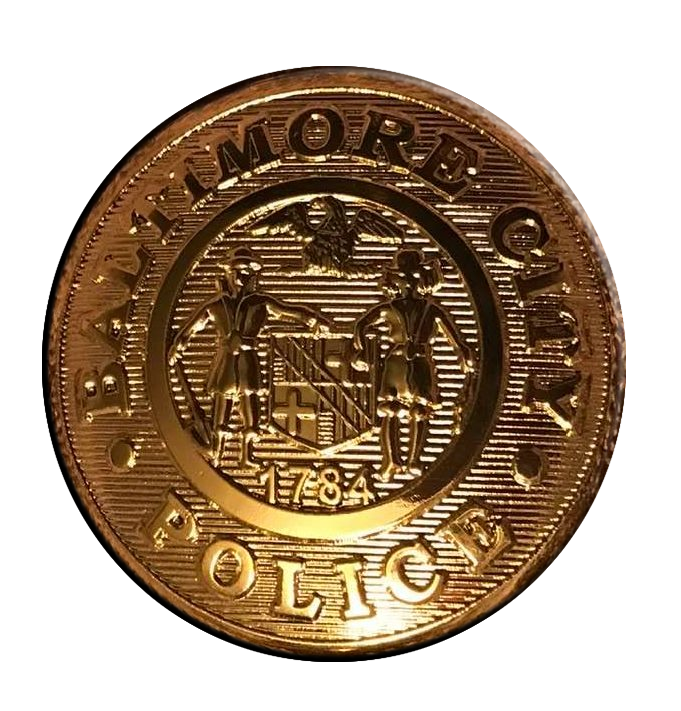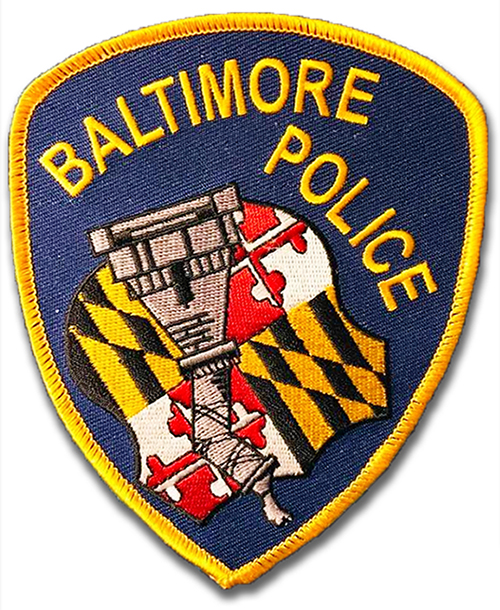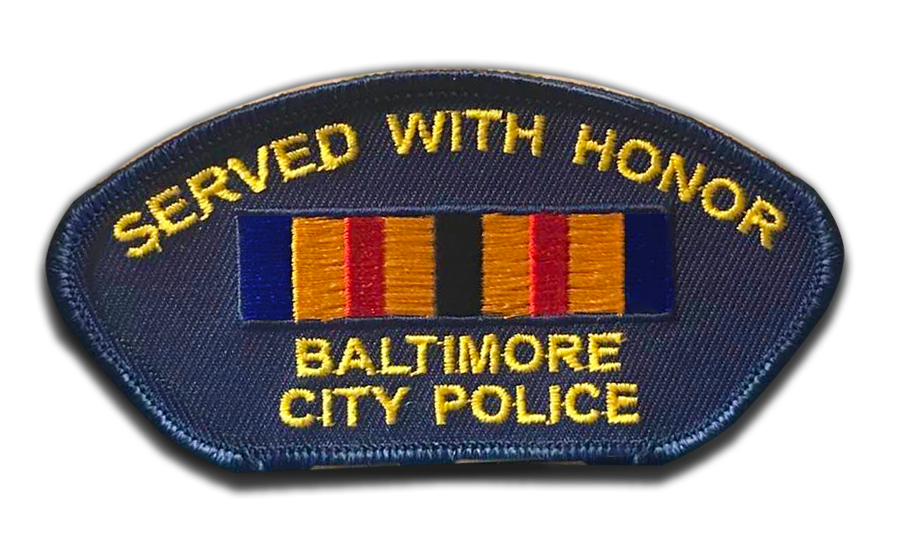On any other day, Davon would have been busy by this hour, trading vials of crack for cash on the pavement, keeping an eye out for the police. But this morning, he was on his way to meet with a narcotics detective named William King. Weeks earlier, the detective had arrested Davon after catching him selling drugs. He had taken Davon to the police station and then let him go, asking that Davon call him. When Davon failed to call, King had paid him a visit to let him know he wasn’t playing around.
As Davon walked to a nearby strip mall where King had arranged to meet, his mind was weighed down by anxiety. What could a city detective possibly want from a small-time drug dealer such as himself? The only answer Davon could think of was that King wanted him to become an informant. The more Davon dwelled on that possibility, the more panicked he got. Where he came from, there was nothing worse than helping the police. To snitch on fellow drug dealers was to invite death.
He got to the mall’s parking lot and saw King’s pickup truck. King was sitting behind the wheel, dressed in sweatpants and a T-shirt. He asked Davon to get in the back seat and turned on the engine. “I have been watching you,” King said, as they drove around. “I like the way you do business.”
Growing up, Davon’s parents weren’t around much. His father, Marvin “Bunk” Nutter, spent much of his son’s childhood in jail on robbery and murder charges. Davon’s mother, Tonya, spent some of those years in jail, too, for drug possession, and the rest on the streets, sustaining her crack addiction with prostitution. Davon reserved the word “Ma” for his grandmother, Norma, who had raised him, along with his sister and a cousin.
Norma was a small woman with a big presence, a matriarch to the entire block. She had fought her own battle with drug addiction when she was younger; at one point, her kids had been taken away by social services. When she finally overcame her addiction, she committed herself to discipline and order, toiling from morning till night to take care of her husband, a factory worker, and three grandkids. The entire block could be dirty and disheveled but the front of 947 Bennett Place was always spick and span.
What Davon didn’t know at the time was that Norma couldn’t remain insulated from the world of drug dealing herself. Even though her husband earned enough for her to be able to feed and clothe the kids, she struggled to find the money to take care of their wants – toys for Christmas, gifts on birthdays, an occasional afternoon out to the movies. And so she had to make a few bucks on her own. There were drug dealers in the neighborhood who trusted Norma to keep their money safe for them, to provide a place where it wouldn’t be stolen or discovered in a police raid. Dealers usually paid her a small amount for the service.
Despite Norma’s best efforts, by the time Davon was about 11, he began to feel the pull of the drug business. He was growing more and more conscious of all the things he wanted that his grandmother couldn’t give him. All the boys he knew in the neighborhood seemed to own a pair of Nike Air Jordan sneakers, but not even in his wildest dreams could he ask Norma for the $100 it would cost to buy a pair.
Davon told a friend, AC, who worked for a dealer in west Baltimore, that he wanted to make some money. One morning, AC took Davon to see one of the dealer’s men, LJ, outside a row of apartment buildings on Pennsylvania Avenue. Davon felt himself trembling a little as LJ looked him over from head to toe. Then he handed Davon a sandwich bag with 50 vials of crack, each capped with a purple top.
Davon slid the pack of vials into his pocket as LJ and AC walked off. He stood nervously in the fenced passageway leading to the door of the apartment building, wondering what he would do if the cops came. Minutes later, a young woman with a sickly pallor came out of the apartment building; recognizing him right away as the seller, she asked him for a vial. After Davon had sold to her, he turned around to find a crowd of at least a dozen other buyers waiting on the sidewalk. The pack was gone within minutes.
LJ gave him another pack, which Davon dispensed with in short order. At the end of his first day’s work, Davon had $750 in dollar bills. It was more cash than he had seen before. He was allowed to keep $75. Walking back to Bennett Place, Davon felt a sense of exhilaration.
Over the summer, as Davon’s shoebox savings grew, he couldn’t resist the Jordans, deluding himself that they would somehow escape notice at home. But one night, when he was sitting in the living room talking on the phone, his mother Tonya overheard him bragging about the sneakers.
“Davon, where did you get these shoes from?” Tonya asked him.
“I got them from Bunk,” he answered, without skipping a beat. His father had got out of jail the previous year, and came around every few days.
Tonya didn’t believe him. She called Bunk, and he came over the next day to take the shoes away and give Davon a beating. He warned Davon to stay off the streets. But Davon was back on Pennsylvania Avenue the very next day. He was hooked on the money he was making. A few weeks later, he packed up his things and left home.
As he built up a reputation for hard work, Davon’s boss gave him more drugs to sell and his earnings went up to more than $500 a day. He had moved into the apartment building where he’d been selling drugs, living with an addict named Lisa who let him stay in a spare bedroom in exchange for her daily fix of crack. At night, he would lie on the floor of his bare room, longing for the comfort of the bed he had left behind at Norma’s house. Sometimes, staring out of the window, he would feel so overcome by loneliness that he would break down and cry.
One afternoon in August 2000, Davon was caught selling drugs by police. He felt a tingle of excitement as he was marched into a police van. He would finally be able to brag about having been to jail. The price of this glory would be minimal, too: as a minor, he expected to be let off lightly.
Davon was released later that day, returning home with his mother. Over the next few days, he mulled over whether to return to Pennsylvania Avenue. He didn’t want to go to prison and decided he was better off going to school, which was about to reopen after the summer break. He was also concerned about Norma, who had been diagnosed with breast cancer.
From the very first day of school, Davon felt a restlessness that quickly transformed into a yearning for his old life. At school, the popular kids were much better dressed than he was. The girls he liked paid him no attention. Davon felt he had taken a big step down in status.
Frustrated, he decided to dip his toe back into the drug business. After school let out in the afternoon, he would go over to a street three blocks from Bennett Place and hustle for a couple of hours before coming home. By the winter, he had saved enough money to buy his first car, an old Grand Marquis. He didn’t want Tonya or Norma to see it, so he parked it a few blocks away and walked the rest of the way home.
Throughout the summer and autumn of 2001, Norma’s health worsened. She would spend most of her time in bed. One day in November, after Davon had started in 10th grade, he went into Norma’s bedroom to check on her. She looked like she was napping, but he touched her, and she was cold.
Two years later, Davon lost another family member, when his father was shot in a revenge killing. That night, for the first time in his life, Davon got drunk. Sitting by himself, he wept uncontrollably, although he would never quite understand why he felt so much grief over the loss of a father who had barely been present in his life.
By this point, Davon had long since quit school and his drug-dealing career was taking off. He had seen smalltime dealers in his neighborhood remain stuck at the bottom of the pyramid, and he hustled day and night to move up. Once he realized there was more money to be made from selling heroin than crack, he branched out into a neighborhood west of Bennett Place. He was making more than $1,500 a day.
When Davon was arrested and let off by the narcotics detective William King in the summer of 2004, he had no idea what King wanted. Now, weeks later, sitting in the back of King’s pickup truck, he silently took in King’s compliment on how he did business, trying to divine King’s intentions. He wasn’t used to hearing praise from a cop.
Softly spoken and reserved, King did not have the kind of intimidating presence that some of his colleagues did. But after joining Baltimore’s narcotics squad in the late 1990s, he had quickly gained respect for his skill at cultivating informants and collecting intelligence. King usually worked with a partner named Antonio Murray, who was shorter and stockier in physique, and more aggressive. The duo were feared by drug dealers, who knew that King and Murray didn’t mind bending the rules if it suited them.
After driving around for a few minutes, going nowhere in particular, King finally came to the point. If Davon could tell him where other dealers in the area were hiding their stash, he would raid them. So far, it sounded exactly like what Davon had been worrying about – the detective wanted him to be an informant. But King went on. After the raids, he would turn only some of the confiscated drugs over to the authorities. The rest he would sell to Davon wholesale, at a price significantly lower than the market rate.
Davon studied King’s face in the rear view mirror. Was this a set up? He saw nothing in King’s expression to make him doubt that the proposition was serious. As the seconds passed, Davon was overcome with the giddy realization that if this arrangement actually worked out, it could catapult him into the stratosphere of Baltimore’s drug trade.
“Absolutely,” Davon said finally. “Absolutely.”
A few days later, Davon got a phone call from King telling him to come to the parking lot of a McDonald’s in east Baltimore. When Davon arrived, he recognized King’s black SUV. He had expected King to be alone but his partner, Murray, was in the car, too.
In the back of the truck were four or five boxes, filled with plastic bags of marijuana. There were four different grades, King told him, 5kg (12lb) in all. King wanted to know if Davon could take the marijuana and wholesale it.
“I’ve got to advertise it first,” Davon said. “I’ll need a sample.”
Davon left the parking lot with four Ziploc bags containing the different kinds of weed, and told King that he would call him. He met with a dealer in his neighborhood, and they settled on a price of $12,000 for all of it. A couple of days later, the dealer brought the cash over to Davon’s house, handing it to him in the presence of Tonya, who had long given up on trying to stop her son from selling drugs.
Once again, Davon met King and Murray at the McDonald’s. He had negotiated them down to a purchase price of $7,000 for the drugs. Davon transferred the boxes from the back of the SUV into his car, and drove out of the parking lot, experiencing a sense of security he had never imagined he would feel under the gaze of two police officers.
In the weeks following the marijuana deal, King began calling Davon every few days. They would meet at the Rite Aide parking lot, across from the western district police station. King would hand Davon whatever drugs he and Murray had confiscated – typically crack or heroin, occasionally marijuana. Davon would take the drugs back to Bennett Place or Pennsylvania Avenue and offload them as quickly as he could.
Davon could usually guess who King and Murray had seized particular batches from. He had been in the business long enough to know which dealers were selling what line of vials – the red tops, purple tops, green tops, blue tops. To reduce the risk of being linked to King and Murray, Davon would repackage the drugs before selling them.
Once the drugs were sold, he would text King to let him know that he was coming over to deliver the money. Within weeks, both of them had got so comfortable with the arrangement that there were times when they didn’t even meet in person. Davon would simply walk over to the parking lot, get into the unlocked SUV and drop off money for King, or collect the drugs King had left for him while King worked his shift at the police station less than 200 yards away.
King was not a man of expensive tastes, but he was bad at managing his money. By the middle of 2004, even with the cash that was rolling in from the secret venture that he and Murray were running on the side, King fell behind on the monthly payment toward his SUV. By comparison, Davon’s finances were remarkably robust. He sensed an undertone of jealousy in the comments King made when he showed up wearing a new shirt or a new pair of shoes. “Somebody’s looking good these days,” King would say.
Toward the end of the summer, King became desperate to make more money. He and Murray were not having as much luck as before in making seizures, as their raids had already put some smaller dealers, the softer targets, out of business. They began to turn up the heat on Davon, secretly keeping track of who he was meeting with. They often showed him pictures of dealers that they knew to be among his friends and associates.
“Do you know this guy?” King asked one day about a particular dealer.
“Yeah,” Davon answered uneasily.
“Well, I want him,” King said.
“I can’t help you with that,” Davon replied.
“Well, when they go down, you’ll go down with them. And we can’t do nothing to help you,” King told him.
Davon had entered into the partnership believing it was a deal between equals. The veiled threats from King broke that illusion. The difference between a drug dealer like himself and a pair of drug-dealing cops, he realized, was that they could operate with impunity where he couldn’t. When King and Murray began actively targeting Davon’s friends in the drug world, he interpreted it as a warning.
Things were about to get worse. One autumn evening, police picked Davon up as part of a street sweep operation a few blocks from Bennett Place. He was taken to the western district police station, where he found himself in an interrogation room with King. The detective looked at him with an even gaze, as if he were facing a stranger.
“You want to stop yourself from going down with the others?” King asked. “You will tell us who the bosses are. Tell us who’s who here and what’s going on.”
“I can’t help you with that,” Davon said.
Davon was released without charge, but King’s threat could not have been any clearer.
When he got home, Davon began looking for a way to overcome the sense of powerlessness he had experienced. Not long after, he looked up the website for the FBI’s Baltimore field office. Over the following days, he called the number a few times but always hung up at the last minute, worried about the possible consequences for himself if he reported the matter to the FBI. Turning it over in his mind, he finally concluded that the legal risk he faced would be minimal because he was 17 – still a minor.
He called the number again. This time, he didn’t hang up.
One day in November, Davon approached a silver Buick parked in Lexington Terrace, a neighborhood of housing projects and row houses similar to his own. A tall FBI agent named Richard Wolf was sitting inside with a colleague, the only two white faces on the street. Davon glanced at them through the window and climbed on to the back seat.
Davon told the agents how he had been recruited by King and what he had been doing for the cop since the summer. Wolf wanted to know why he had decided to turn on his former partners. “I don’t trust King,” Davon said. He was worried that the detective could put him in jail whenever he pleased, if Davon didn’t do his bidding. And there was another reason he had contacted the FBI, he explained. He wanted to get out of selling drugs for the sake of his newborn daughter. Becoming an informant, he reasoned, could give him a safe exit from the world of dealing.
Wolf was struck by how self-assured Davon was. As a special agent, he knew it often took some coaxing to help whistleblowers and informants overcome their nervousness. But Davon didn’t seem nervous at all. Wolf proceeded to lay down a condition: Davon would be paid to help the FBI develop a case against King and Murray, but he would have to stop hustling. If he got caught dealing drugs while working as an informant, he could face federal charges. Davon nodded.
Every year, the FBI investigates dozens of complaints of corruption by public employees. Since turf battles between the FBI and local law enforcement agencies around the country are not uncommon, federal agents tasked with investigating police officers have to be especially careful about pursuing charges of wrongdoing, lest they be perceived as pushing a hidden political agenda. The agents must also restrict knowledge of their investigation to an unusually small circle, since a cop, especially a guilty one, would be more likely to sniff out an ongoing probe and move to cover their tracks. Wolf, who was joined by a fellow agent named Wendy Munoz, was keenly aware of these sensitivities as he followed up on the information Davon had provided.
The first step toward building the case was to collect evidence of a drug deal between King and Davon. It was Davon who came up with the plan. He would tip King off to a stash of crack hidden in an alley off Bennett Place, enabling King to confiscate the stash and give it to Davon to sell. But this time the crack would have to be fake, since the FBI couldn’t knowingly allow real drugs to be exchanged for money.
Through a Baltimore police sergeant, Wolf got hold of a recipe for baking a fake “crack pie”, which involved mixing Anbesol, the pain-relief medication, with baking soda and water, and heating it in the microwave. The resulting product was meant to have the yellowish color and the grainy texture of crack. But when Wolf and Munoz attempted the recipe, in the FBI’s office kitchen, the results left something to be desired. What they had made looked nothing like crack.
Wolf called the sergeant again to tell him, with some embarrassment, that the recipe hadn’t worked. The sergeant gave him an easier alternative: macadamia nuts. Wolf went out and bought a bag of macadamias from the store, and Munoz spent hours splitting them into slivers with her fingernails. The agents made up 160 yellow plastic baggies and showed them to Davon, who gave his enthusiastic approval. In casual handling, he said, the bags could easily pass off as the real thing.
A week later, on 30 December 2004, the agents met Davon again. He put the bags of fake crack in a McDonald’s paper bag and stashed it in the alley. At 11.50am, King parked his car near Bennett Place, entered the alley and phoned Davon, who guided him to the stash. Davon and the agents heard rustling noises as King searched. “I got it,” he said, finally. “I got it.”
Shortly after noon, Davon walked over from Wolf’s car to meet King at the Rite Aid parking lot, across from the police station. In his trouser pocket was a digital recorder. King handed him the McDonald’s bag. He wanted the crack sold as quickly as possible. “Need some money,” King said.
A few hours later, Davon met up with the agents again and gave them the bag. Wolf gave him $750, all in crumpled singles and five- and 10-dollar bills, as would be expected if the money had come from peddling crack on the street. Near the bottom of each bill, Wolf had scribbled his initials “RJW” with an ultraviolet pen. Davon gave King another call.
“I got that dough,” he said.
“You for real?” King said, surprised that the crack had sold so quickly.
“The shit jumped off,” Davon said.
Minutes later, he met up with King and delivered the cash.
By mid-February, the FBI had received court authorization to tap King and Murray’s phones. From the calls, the FBI agents could deduce that the detectives were forcing dealers they nabbed into their vehicle and, after talking to them, letting them out. But Wolf and Munoz had no evidence of what was transpiring inside the Chevrolet Lumina. They needed a microphone in the car.
One night in late March, after King and Murray had ended their shift, leaving the Lumina in the Rite Aid parking lot by the police station, FBI agents drove up in an identical Lumina and parked it next to King and Murray’s vehicle. Next, they swiftly unlocked King and Murray’s and drove it away, leaving the decoy in place. To a casual observer inside the police station, which the agents knew was staffed 24 hours a day, nothing would have looked amiss. A couple of hours later, the agents brought King and Murray’s car back to the lot – now rigged with microphones and GPS trackers – and drove away the stand-in car.
Now the FBI began listening in on conversations King and Murray were having with dealers picked up from the street. Some of the dealers appeared to know what to expect, thanks to the reputation the cops had earned. Threatened with arrest, the dealers surrendered their cash and drugs meekly, sometimes pleading to get a few dollars back.
By early May 2005, Wolf and Munoz – along with other officials – were convinced they had enough evidence to wrap up the investigation. Later that month, the FBI invited King and Murray’s squad to their office for a meeting whose stated goal was to form a taskforce aimed at fighting drugs in Baltimore. As soon as King and Murray got there, agents put them in handcuffs and informed them that they were being arrested on federal drug charges. In separate interviews with the two men, agents played back recordings of the some of the incriminating phone calls. King listened, crestfallen. “I really think I should have my attorney,” he said, nervously. “Don’t you think I should have my attorney?”
When the case went to trial in March 2006, Davon was one of the first witnesses to take the stand. King and Murray watched from across the courtroom as Davon described how their partnership began and what he did to enable the FBI’s sting operation. Up to that moment, Davon hadn’t shared the secret of his collaboration with anybody, not even his girlfriend, Keisha.
After word got out about his appearance in court, the FBI moved Davon to a hotel in a suburb of Baltimore for his own safety. He got threatening phone calls. Keisha was stopped on the street by gang members. “Tell him we’re going to kill him,” they said. Even Tonya, who was still living at Bennett Place, was angry that her son had helped the feds. He had violated a sacrosanct rule of where he had grown up: you never work with the police, because law enforcement can never be your friend.
As the trial proceeded, the evidence against King and Murray mounted. Since the duo were carrying police-issued guns while shaking down dealers for drugs and cash, the jury found them guilty on multiple counts of armed robbery, in addition to several other counts of extortion and possession of drugs with intent to distribute. The judge sentenced the men to a combined 454 years in prison.
Throughout the investigation and the run-up to the trial, Davon had not thought much about what would happen after it was all over. He had vaguely imagined getting a lot more help from the government, taking his cue from movies in which the FBI relocated witnesses and bought them houses. The reality was somewhat different. After the trial ended, the FBI helped Davon to move into a rental apartment, giving him $1,500 to put down as a deposit. As the case was over, Wolf explained to Davon, the bureau could no longer justify paying him as an informant.
He was now on his own, without much cash to support himself. At one point, he had made a substantial amount of money dealing drugs, but he had ultimately squandered it, and now had nothing to show for the drug-dealing career he had had: no house, car or significant savings.
Davon’s girlfriend, Keisha, worked for the county government and had a daughter from a previous relationship. Davon didn’t want to be financially dependent on her, and he eventually found work at a Wal-Mart, making $9 an hour unloading trucks at the store’s warehouse. After all those years of making quick money, the backbreaking labour was an unpleasant dose of reality. The inside of the trucks felt like an oven. The Wal-Mart was more than 20 miles from where he lived, and since he no longer had a car, he had to pay an acquaintance a few dollars a day to take him to work. He had to ask Keisha to pick him up at the end of his shift. It felt humiliating. Of the $1,300 or so he made a month, more than $1,000 went toward paying rent and bills. “How do people survive off of this?” he asked Keisha.
As the months passed, he felt his patience for this new way of life depleting. The only way out, Davon decided, was to get back into hustling. But he had no capital to invest and there was no way anybody would front him drugs.
Bit by bit, he saved up a few hundred dollars. Then he called his grandfather, Ford, who reluctantly helped him re-establish contact with a couple of suppliers. Davon began selling to dealers who had bought from him before but didn’t know his real name. Within weeks, he was back to making $300-$400 for work that took no more than a few minutes. Shortly after, he quit working at Wal-Mart. “The job was slowing down the hustle,” he told me.
When the lease on his apartment ended, he moved in with Keisha, but he kept her in the dark about the extent to which he had resumed his drug dealing. The black hole had pulled him back in.
In January 2009, Keisha and Davon had a baby girl, who they named Daylyn. Up until this point, Keisha had downplayed the consequences of his drug dealing in her mind, accepting it as something he simply couldn’t get out of. But now, after having become the mother of his child, and after Davon had another close call with the police, she gave him an ultimatum. “You have to make a choice,” she said. “The streets or family. You can’t have both.”
Davon had already lost his grandmother Norma, and his mother had died earlier that year. The only family he had left was Keisha. He agreed to give up his drug dealing. Over the next year-and-a-half, Davon began making a small income by working at bars and giving haircuts on the side. He and Keisha divided the household expenses down the middle. The house was in Keisha’s name; Davon paid her a part of the mortgage in the form of rent. Then, one day in the fall of 2011, after weeks of growing increasingly distant and quiet, he told Keisha he didn’t have the money that month.
“What happened to your paycheck? You just got paid,” she asked. He admitted that he had given the money to a dealer, but the guy had been arrested. The money was gone.
Keisha was furious. She was convinced that Davon was incapable of shaking his addiction to the easy money that drug dealing brought. “I’m not going to live like this anymore,” she said. She told him he was going to have to find another place to live. Davon knew that it wasn’t an empty threat. He had to make a lasting change.
A week before Thanksgiving in 2011, I met up with Davon at a mall in Towson, Maryland, about 25 miles from Baltimore. I had made contact with him earlier that year after learning about the King and Murray investigation, which had left me wondering how things had turned out for him since. When I made my way through a throng of holiday shoppers into the restaurant, Davon rose from the table where he was seated with Keisha and Daylyn, and greeted me with a handshake, flashing a grin that revealed two gleaming gold teeth. Although he was nearing his 26th birthday, he still looked boyish.
He described how poor he felt now every time he walked into a mall with Keisha. “I used to spend $1,000 at a mall in the blink of an eye,” he said. He ruminated about how things might have turned out if he had chosen to continue working with King and Murray instead of going to the FBI. “I know if I had chosen to go down the path that I was on, and if I weren’t in jail right now, I would be at the top of the game,” he told me. “I would be untouchable right now.”
We stayed in touch over the following months, and in March 2012, Davon got a job with a company specializing in lead and asbestos abatement. The work was grueling but Davon seemed happy. But keeping the past at bay had not been easy, he told me one day that spring when we met up for lunch at a mall in Columbia. Some of his old friends kept asking him to join them. “I get offers all the time,” he said. “Because I still know guys who are pretty high up. They think that I know how to avoid a lot of stuff with the police. That I got some kind of deal.” His bond with both his daughters had been growing stronger each day, he told me. That’s what kept him straight.
Reporters are supposed to stay neutral about their subjects, but the more I got to know Davon, the more I slipped into the role of a supportive confidante. As we continued to meet over the next two years, I began rooting for his success, not least because I wanted to see his story end in redemption and hope rather than failure. He would call me every few weeks to share his dreams of starting his own business one day.
When I was at the beach on Memorial Day weekend in 2013, he called me to tell me that his cousin and that cousin’s one-year-old child had been murdered in downtown Baltimore. He was immensely troubled by this news. A few months later, Keisha called me to tell me that Davon had suffered a panic attack. He had called her from the highway crying hysterically and saying that he was lost. He had managed to drive to the nearest hospital, which transferred him to a psychiatric ward.
When Davon was released three days later, his mental health was still fragile. He often called me for support, and I worried that he would unravel. I urged him to look into college. He passed a test for admission into preparation classes for a high-school equivalency qualification from Baltimore City Community College. Davon was short of money, and despite knowing that I was about to breach the barrier that is supposed to always keep a reporter separate from his subject, I paid the $80 fee he needed to register in the fall.
After he began attending class, he returned to his optimistic self. In December, I lent him $150 so that he could take his exams. He scored one of the highest in his class, and sent me a joyous text in January to say that he had been accepted into the ITT Technical Institute in Baltimore county to pursue an associate degree in network systems administration. While taking courses toward that degree over the next year, he began working as a contractor specializing in hooking up internet cables and other infrastructure for computer networks at government departments and private businesses. For the first time in his life, he had what he saw as a viable career.
In our conversations over the past two years, during which Davon continued to thrive, we had occasion to reflect on his life’s arc. The endless hours he spent telling me about his childhood and teenage years appeared to have given him an understanding of his story that he had never had before – an appreciation of the complex interplay between the circumstances he found himself in at various points in his life and the choices he had made along the way. He might not have become a drug dealer if he hadn’t grown up on Bennett Place. Nor would he have considered giving up that career if circumstances hadn’t led him to become an FBI informant. Yet, without Keisha to hold him to account – and to a lesser extent, my desire to tell a story I had always imagined to be one of redemption – he could have easily slipped back into the black hole. The more perspective he gained about his own journey, the more he realized how impossible it was for many with his kind of background to climb out of their situation.
One morning not long ago, Davon took time out to give me a tour of his old neighborhood. We walked down Bennett Place, past boarded-up houses. The sidewalks were deserted, and there were no signs of drug activity anywhere. We sat on the steps of a townhouse a couple of doors down from the one he had grown up in. It saddened him to think that there were so many like him on these streets who had suffered what he had but didn’t have a way out.
“I hate it when people say you have a choice,” he said. “It angers me. What choice do you have when your mother is out prostituting herself to feed her drug habit and your father is out murdering people?”
We walked toward my car. He turned back to take another look at his grandfather’s townhouse. “That’s our house,” he said. His plan was to buy it and turn it into a safe space for teenagers, off the streets. “It would just be for the community,” he said. “You don’t have a place to stay? You can come here. That would make my grandmother proud.”
Main photograph: JM Giordano for The Guardian

